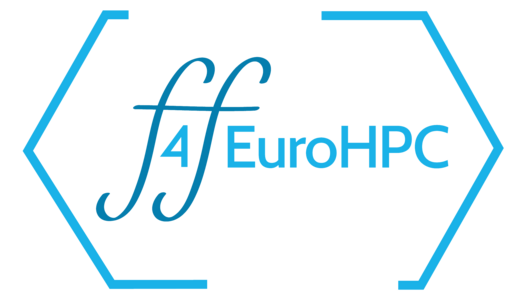High-Performance Computing Center Stuttgart

As a part of this undertaking, EuroHPC, under the auspices of the European Commission's Horizon 2020 program, has been awarded a three-year grant of approximately €10 million to start a new European consortium called FF4EuroHPC. The new project will undertake targeted outreach to SME's, smoothing access to HPC technologies and solutions that will make them more competitive.
The High-Performance Computing Center Stuttgart (HLRS) will serve as the coordinating center for the project, working together with partners at Scapos AG (Germany), CINECA (Italy), Arctur d.o.o. (Slovenia), TERATEC (France), and CESGA (Spain). FF4EuroHPC will begin operation on September 1, 2020.
The core team leading FF4EuroHPC includes several centers that were also involved in the EU-funded Fortissimo and Fortissimo 2 projects, which between 2013 and 2020 organized 92 successful business experiments involving SME's and high-performance computing. FF4EuroHPC will use and extend the lessons learned during Fortissimo to identify and test new applications of high-performance computing in industry across Europe.
Fortissimo's past successes have enabled SME's, working with HPC experts, to develop solutions to a wide range of problems. At HLRS, for example, these have included virtual testing of safety systems for driving, cloud-based multiphysics simulations for micro speaker design and development, and cloud-based simulations of ultra-high-temperature furnaces, among others. (See the complete set of Fortissimo success stories at all participating HPC centers.)

FF4EuroHPC will organize two new open calls for proposals from small and medium-sized enterprises that can demonstrate compelling cases for using HPC technologies and expertise. Whereas in the past Fortissimo and Fortissimo 2 focused primarily on applications of HPC for manufacturing, FF4EuroHPC will be open to a broader range of engineering use cases, as well as innovative cases from other growth sectors. Proposals are welcome not only to use traditional applications of high-performance computing for simulation and modeling, but also for new kinds of applications involving data analytics, machine learning, and artificial intelligence.
Outstanding proposals will receive support through FF4EuroHPC to undertake "application experiments" addressing the business problems they propose. As the project proceeds, these experiments will lead to the development of a portfolio of success stories demonstrating the innovation potential of HPC.
According to Dr. Bastian Koller, who will be leading the project at HLRS, "We see great opportunities for FF4EuroHPC to lower the barriers that typically make it difficult for SME's to innovate using HPC. We expect that the project will help businesses to improve their product design and development processes, ultimately leading to better products and services. Taken together, we also expect that this project will raise the global competitiveness of Europe as a whole."
FF4EuroHPC will complement two other recently announced Europe-wide projects that HLRS is also coordinating. The first, called EuroCC, is establishing HPC competence centers in 33 countries, each of which will become a resource for its national HPC community, including for industry. The second, called CASTIEL, will document HPC competencies and resources across Europe, and lead activities to promote knowledge sharing and collaboration across borders. FF4EuroHPC will work closely with both of these projects, integrating them into outreach activities surrounding the open calls as well as in the execution of research experiments. (Read more about EuroCC and CASTIEL.)
Extending the prior Fortissimo projects, which involved a smaller number of HPC centers, the new project looks forward to receiving applications from SME's that will pair with or receive support from national HPC competence centers across the entire EuroCC network. Other kinds of partnerships — involving Digital Innovation Hubs, for example — are also expected to participate. By the end of the project cycle, FF4EuroHPC expects approximately 40 SME's to participate, all of which will be new users of HPC. Through this approach, FF4EuroHPC will promote industrial HPC usage among SME's in regions where it has previously been slow to develop.
The FF4EuroHPC organizers anticipate that the success stories resulting from its activities, taking place in combination with the overall EuroHPC strategy for increasing HPC capabilities across Europe, will demonstrate the opportunities that access to HPC offers for small and medium-sized enterprises. This will help not only to attract interest from other SME's that could benefit from HPC, but also to gain support from governments and other stakeholders for the development and maintenance of robust HPC resources and services.
— Christopher Williams